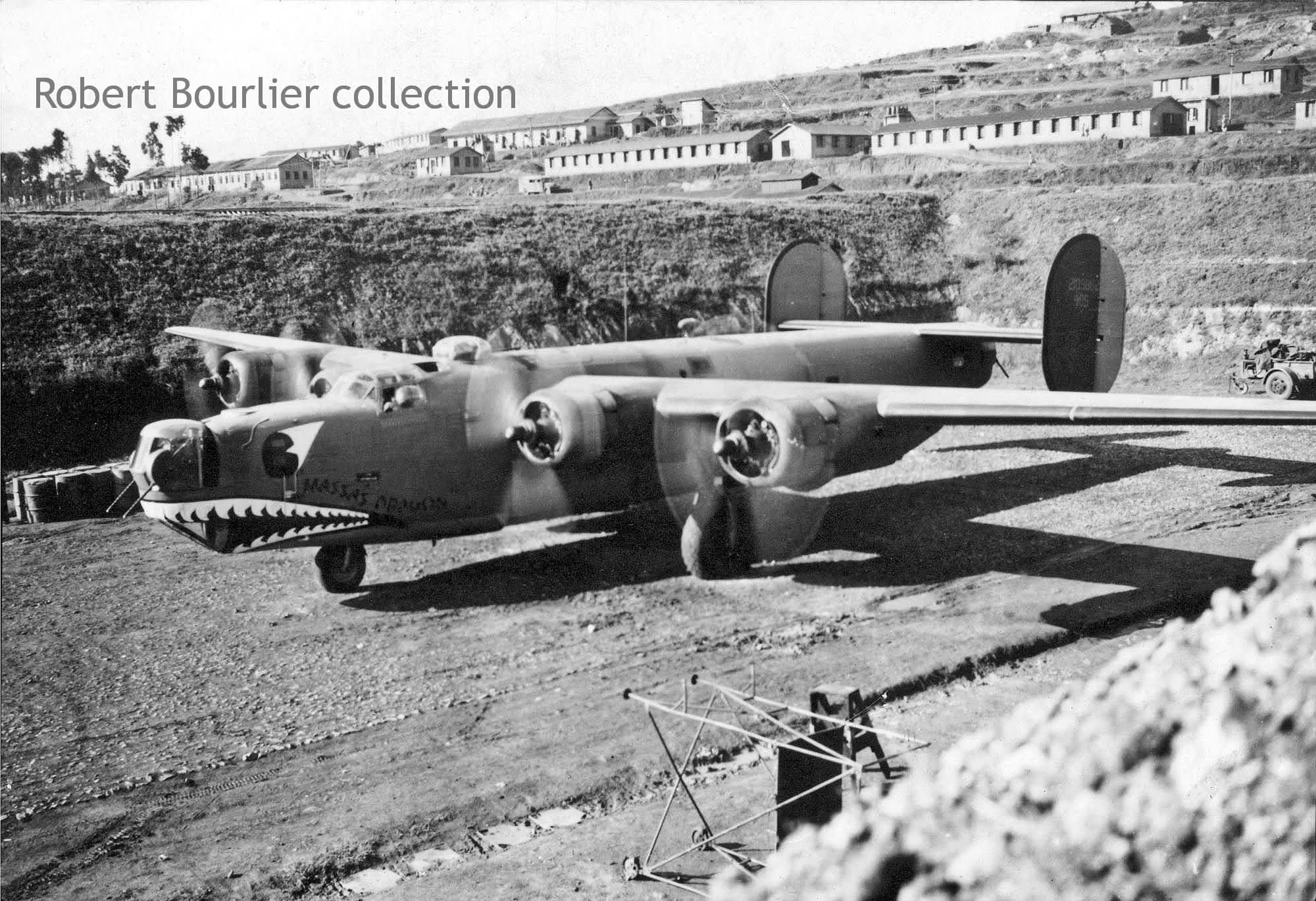Here are the challenges faced by the 308th BG Liberator crews operating from Chinese airfields:
- Limited logistical support: The 308th BG faced unique logistical challenges due to their location in China. The group was responsible for transporting its own fuel, ammunition, spare parts, and other necessities from India over the treacherous Himalayan “Hump” route before commencing combat missions. This meant that for every combat mission, approximately three supply flights over the Hump were necessary.
- Flying the Hump: This route, essential for supplying the 308th BG, was perilous and more demanding than combat flights. Crews endured bad weather, severe icing, and the dangers of flying overloaded aircraft. Mechanical problems and crashes during take-off due to heavy loads were frequent, resulting in the loss of aircraft and crews. The 50th Sentai also targeted transport aircraft along the Hump route.
- Inadequate infrastructure: The airfields in China were primitive and poorly equipped, making maintenance a challenge. Refueling involved laborious manual pumping, and the rough, hand-built runways caused damage to the B-24s, which were designed for paved surfaces.
- Aggressive Japanese fighters: Initially, the B-24s had some success in avoiding Japanese fighters. However, as the war progressed, Japanese pilots, particularly those from the 25th and 33rd Sentais, adopted more aggressive tactics, learned to exploit the B-24’s vulnerabilities, and improved their coordination with radar. They focused on frontal attacks, targeting the cockpit and engines, and persistently pursued the bombers. This resulted in heavy losses for the 308th BG, as seen in the missions to Hankow in August 1943, where a third of their aircraft were destroyed or badly damaged. The 308th also encountered fighters from the 11th and 85th Sentais.
- Night operations: The 308th BG increasingly relied on night missions to avoid Japanese fighters and minimize losses. However, taking off with a heavy load from a rough airfield at night was incredibly challenging and dangerous, leading to accidents and casualties.
- Lack of fighter escort: Initially, fighter escorts were limited due to the need to prioritize the protection of other aircraft and missions. This left the B-24s vulnerable to Japanese fighters, forcing them to rely on their own defensive capabilities. However, as the war progressed, the importance of fighter escorts for the B-24s became apparent.
- Shortages of fuel and supplies: Fuel shortages significantly hampered the 308th BG’s operations, limiting their ability to fly missions and even hindering their ability to ferry supplies over the Hump. This shortage forced the group to increase its focus on intra-China supply missions to distribute fuel and ammunition to forward airfields.
These challenges highlight the demanding and dangerous conditions the 308th BG faced while operating in China. Their success in accomplishing their missions despite these obstacles speaks to the resilience and skill of the crews.
